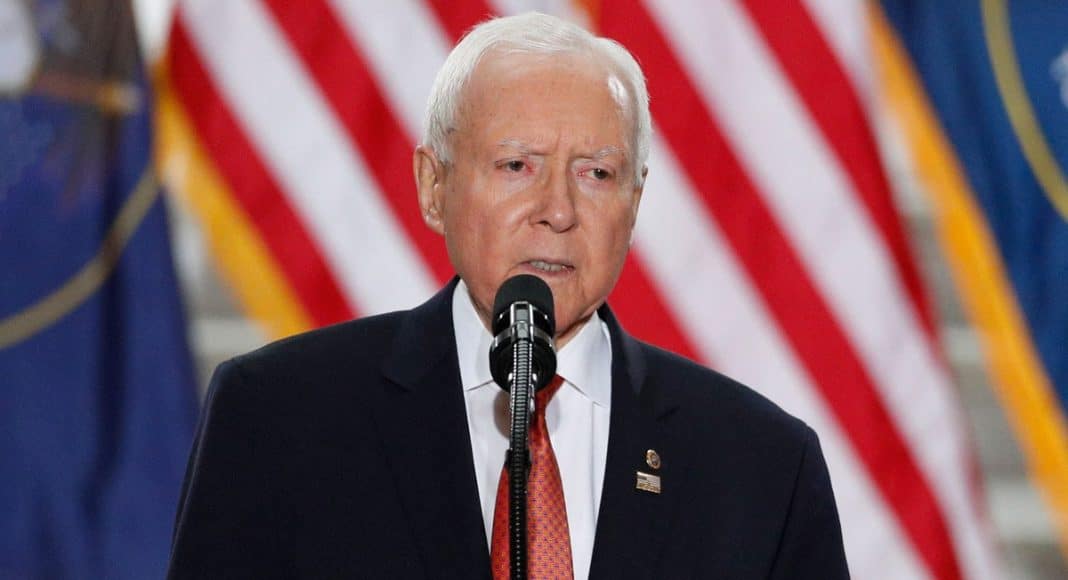Research is the backbone of the scientific community. Without it, we’re just making educated guesses about the realities regarding the mechanics of our universe. So the inability to truly explore and probe the chemical underpinnings of how and why marijuana can be used as medicine has exacerbated many within the scientific community. Joining that fight recently was Utah Sen. Orrin Hatch who widely condemned the “regulatory acrobatics” scientists must engage in to study cannabis and its medicinal properties.
“Under current law, those who want to complete research on the benefits of medical marijuana must engage in a complex application process and interact with several federal agencies. […] The longer researchers have to wait, the longer patients have to suffer,” Hatch said via his spokesman to the Deseret News.
Hatch currently serves as President pro tempore of the US Senate and is the longest-serving Republican senator in US history. Earlier this week, Colorado Congressman Jared Polis sent a letter to Eric D. Hargan, who serves as the acting secretary of the Department of Health and Human Services, asking the agency to consider investigating marijuana as an alternative treatment for pain as opposed to opioids.
Hatch, however, pinpointed the Federal Drug Administration in delaying researchers’ work.
“Currently, the [Food and Drug Administration] estimates that a drug takes a minimum of seven years to move from initial studies to FDA approval,” Hatch told the Deseret News. “The regulatory hoops researchers have to jump through significantly delay the production of potentially life-changing medications that Americans need.”
Hatch has supported cannabis research in Utah and beyond. This September, the senator introduced the Marijuana Effective Drug Study Act of 2017. The bill aims to fix the problem Hatch identified above, as researchers wouldn’t require such regulatory approval. The bill would also require the U.S. Attorney General’s Office—in other words, Jeff Sessions—to raise the allowed national funds and quota for marijuana research to “meet…changing medical, scientific, and industrial needs.”
“The MEDS Act would encourage this research through reduced regulatory interference, and it would expand sources of research-grade marijuana with the assurance of a quality-controlled product,” Hatch said. “My proposal would also allow for the commercial production of drugs developed from marijuana once they have been approved by the FDA.”
-
Related Story: What Does The FDA Really Think About Medical Marijuana?
Though the bill wouldn’t force the Drug Enforcement Agency to change marijuana’s Schedule I drug classification—which means marijuana is considered to have no accepted medicinal benefits in the United States and has a high potential for abuse—it will drastically prohibit certain federal review processes from halting researchers.
In Utah and across the nation, opioid abuse continues to ravage good, hard-working families who have fallen captive to the tyranny of addiction. Because Utahns have watched their family members, friends, and neighbors grapple with this epidemic, many are seeking non-narcotic alternatives that can help with pain,” Hatch said. “Medical marijuana is just one such alternative.”


